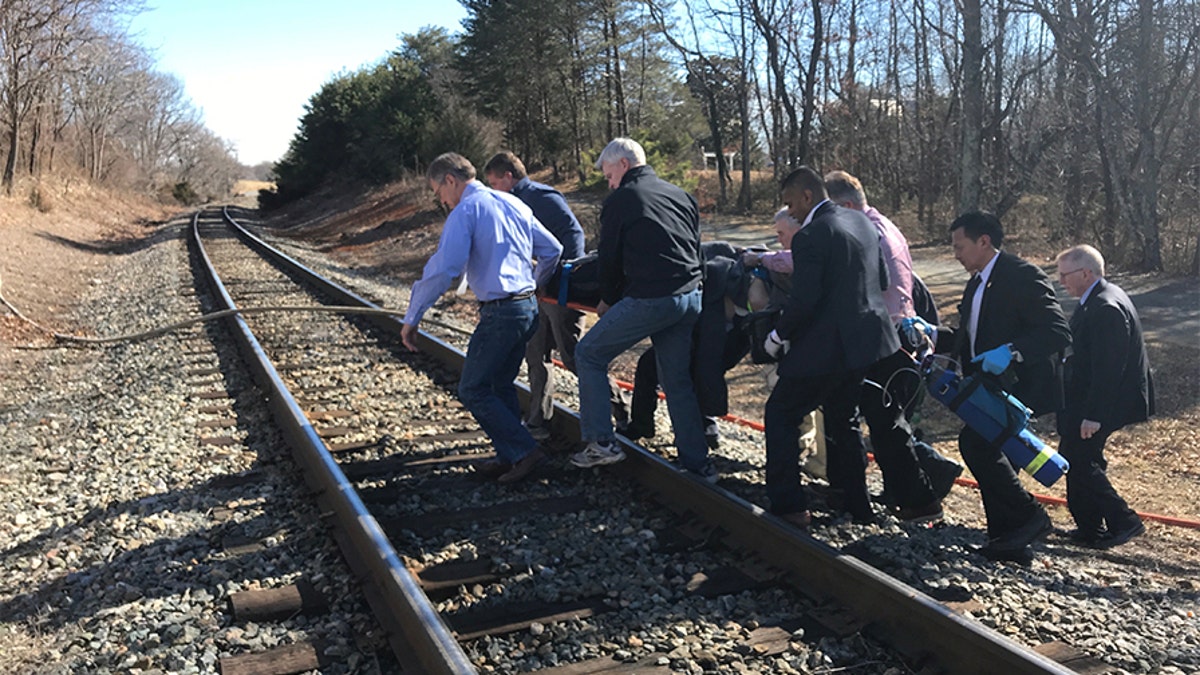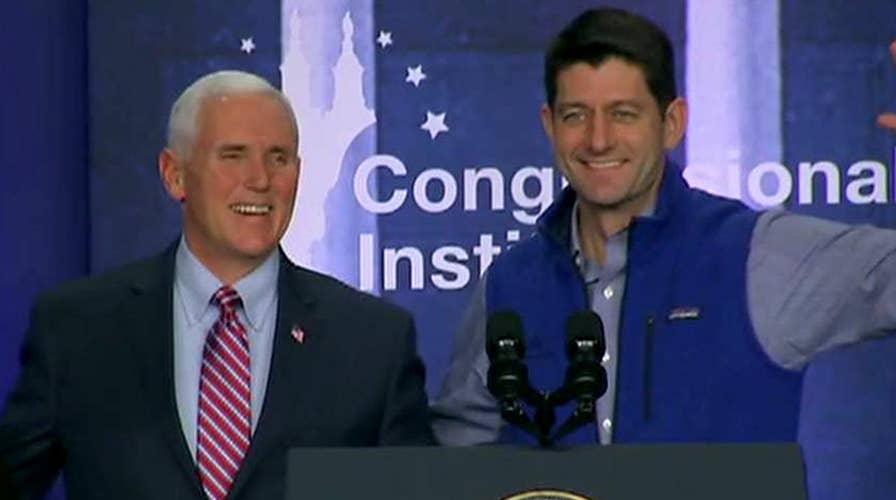GOP makes midterms a priority at West Virginia retreat
President Trump to address the lawmakers after the deadly train crash.
WHITE SULFUR SPRINGS, W.Va. – Congressional Republicans have made health care reform -- including the lowering of Americans' insurance premiums -- an early priority at their annual policy retreat but have no imminent plans to try again to fully repeal ObamaCare, North Carolina GOP Rep. Mark Meadows said Thursday.
“There were discussions last night on health care and [about] what we do and how we approach that,” said Meadows, the leader of the conservative House Freedom Caucus. “For me, it’s about getting premiums down for the people that I serve.”
Meadows said at least two senators have been “working diligently behind the scenes” for the past several months on lowering premiums. However, he essentially ruled out a full ObamaCare repeal-and-replace effort, like the one this past summer that passed in the GOP-controlled House but failed in the Senate, where Republicans hold a much narrower majority.
“We’ve not totally abandoned that. But no, I don’t see a full repeal,” said Meadows, pointing out that Republicans now have an even smaller Senate majority.
Congressional Republicans are at the Greenbrier resort in West Virginia through Friday for their annual policy retreat, which started tragically when a train carrying some lawmakers and their families struck a vehicle Wednesday in Virginia, killing a vehicle passenger.
President Trump is scheduled to arrive at the retreat Thursday afternoon to talk to the lawmakers including Capitol Hill Republicans’ top leaders -- Senate Majority Leader Mitch McConnell, Kentucky, and House Speaker Paul Ryan, Wisconsin.

Lawmakers are seen carrying an injured victim after the train crash en route to the GOP retreat.
Those also attending the retreat are U.S. Ambassador to the United Nations Nikki Haley, Secretary of State Rex Tillerson and Defense Secretary James Mattis.
House Armed Services Committee Chairman Mac Thornberry, R-Texas, spoke to reporters Thursday morning after Tillerson and Mattis joined the lawmakers at a closed-door breakfast.
He suggested lawmakers are “very close” to long-term budget deal, ahead of the government in the next several days again running out of money and facing a second shutdown this year. Congress has for years been forced to pass stopgap spending bills after failing to reach longer-term deals and will likely have to pass another one this month.
Thornberry said he was not aware of any formal discussions so far on House Republicans’ attempts to make public a controversial memo about Justice Department surveillance efforts.
Meadows also expressed optimism about Congress passing an infrastructure-spending plan this year but acknowledged concerns about how to pay for the administration’s proposed $1.5 trillion plan.
“I think right now it’s about how you pay for it, how you get to $1.5 trillion,” he said. “That’s the big question.”






